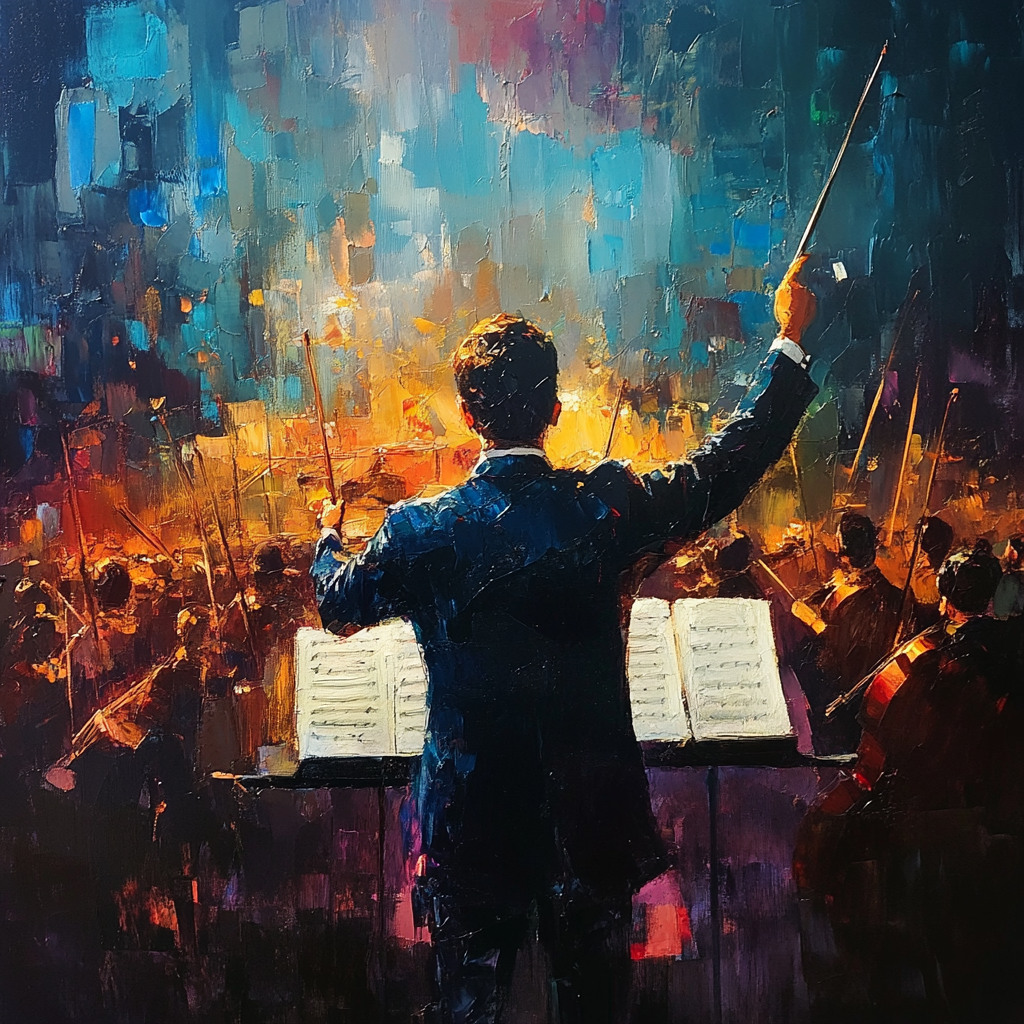Table of Contents
10 Best Conductors of the 1900s
Introduction
The 20th century was a golden era for classical music, with some of the finest conductors emerging during this time. These maestros not only guided their orchestras through landmark performances but also helped shape modern interpretations of classical works, influencing generations of musicians. From symphonic orchestras to opera houses, the best conductors of the 1900s brought new levels of precision, passion, and innovation to the art of conducting. In this article, we will explore ten of the most influential conductors of the 20th century, whose legacies continue to resonate today.

10 Best Conductors of the 1900s
1. Leonard Bernstein (1918–1990)
Leonard Bernstein was one of the most iconic conductors of the 20th century, celebrated for his dynamic conducting style and charismatic personality. Bernstein led the New York Philharmonic for over a decade, bringing both classical and contemporary works to new audiences. He was also a gifted composer, with his works for the Broadway musical West Side Story being among his most famous. His commitment to making classical music accessible to wider audiences, through televised concerts and public appearances, made him a beloved figure in American music.
2. Herbert von Karajan (1908–1989)
Herbert von Karajan was a legendary Austrian conductor, best known for his long tenure with the Berlin Philharmonic. He was renowned for his precise technique and ability to bring out the finest nuances of orchestral sound. Von Karajan’s interpretations of Beethoven, Brahms, and Wagner are considered definitive, and he became one of the first conductors to embrace the possibilities of recording technology. His extensive discography and polished style have left an indelible mark on the classical music world.
3. Arturo Toscanini (1867–1957)
Arturo Toscanini is widely regarded as one of the greatest conductors of all time. Known for his passionate and exacting approach, he brought unprecedented discipline and clarity to his orchestras. Toscanini’s long career included conducting roles with the New York Philharmonic, NBC Symphony Orchestra, and La Scala. His performances of works by Verdi, Beethoven, and Wagner are legendary, and his influence is still felt in the world of classical music.
4. Wilhelm Furtwängler (1886–1954)
Wilhelm Furtwängler was a German conductor noted for his profound interpretations of the Romantic repertoire, especially Beethoven, Brahms, and Wagner. His conducting style was characterized by its flexibility and emotional depth, often giving performances a sense of spontaneity. Despite his controversial involvement with Nazi Germany, Furtwängler’s artistry remains highly respected, and his recordings are considered some of the finest examples of German conducting from the early 20th century.
5. Sir Georg Solti (1912–1997)
Sir Georg Solti was a Hungarian-British conductor who gained international acclaim for his powerful interpretations of opera and symphonic music. He was particularly renowned for his association with the Chicago Symphony Orchestra, which he transformed into one of the world’s greatest orchestras during his tenure. Solti’s recording of Wagner’s Der Ring des Nibelungen with the Vienna Philharmonic is considered one of the greatest achievements in recorded music history.
6. Pierre Boulez (1925–2016)
Pierre Boulez was a French composer and conductor, known for his avant-garde approach to both composition and conducting. As a conductor, he was highly regarded for his precision and intellectual approach to modern and contemporary music. Boulez worked with many of the world’s leading orchestras, including the New York Philharmonic and the BBC Symphony Orchestra. His interpretations of composers such as Stravinsky, Mahler, and Debussy helped redefine how these works were understood and appreciated.
7. Carlos Kleiber (1930–2004)
Carlos Kleiber was a highly respected and enigmatic Austrian conductor, known for his rare but exceptional performances. His meticulous approach to preparation and refusal to conform to the commercial demands of the music industry made each of his appearances a highly anticipated event. Kleiber’s interpretations of works by Beethoven, Brahms, and Strauss are revered for their vitality and emotional intensity. Despite his relatively small discography, his influence on conducting remains profound.
8. Eugene Ormandy (1899–1985)
Eugene Ormandy was a Hungarian-American conductor, most famous for his long tenure as music director of the Philadelphia Orchestra. Ormandy’s conducting was known for its lush, romantic sound, particularly in the works of Tchaikovsky, Rachmaninoff, and Sibelius. His partnership with the Philadelphia Orchestra produced many acclaimed recordings, and his interpretations helped define the orchestral sound of mid-20th century America.
9. Zubin Mehta (1936–Present)
Zubin Mehta is an Indian conductor who has led some of the world’s most prestigious orchestras, including the Los Angeles Philharmonic, Israel Philharmonic, and New York Philharmonic. Known for his charismatic and energetic conducting style, Mehta has brought a blend of technical precision and passionate expression to his performances. His long career and global influence have made him one of the most important conductors of the late 20th century.
10. Seiji Ozawa (1935–Present)
Seiji Ozawa is a Japanese conductor who gained international fame for his long association with the Boston Symphony Orchestra, where he served as music director for nearly 30 years. Ozawa is celebrated for his wide-ranging repertoire, from classical to contemporary works. His dynamic style and engaging personality have made him a beloved figure in classical music, particularly in the United States and Japan. Ozawa has continued to perform and record well into the 21st century, solidifying his place among the greatest conductors of the 20th century.
Conclusion
The 20th century was a time of great innovation and transformation in classical music, and these ten conductors played an essential role in shaping the way orchestral music was performed and appreciated. Their influence extends far beyond the concert hall, as their recordings and performances continue to inspire new generations of musicians and conductors. From Bernstein’s dynamic leadership to Boulez’s intellectual rigor, these conductors have left an indelible mark on the world of music.
Additional Reading
More blog posts can be found here. Consider following Breve Music Lessons on Facebook.
